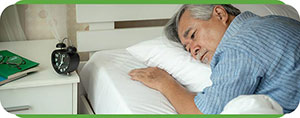Are Sleep Disorders Neurological or Psychological?
Having insomnia, narcolepsy, sleep apnea, or parasomnias is a sign of sleep disorders. Sometimes your sleep disorders are neurological or sometimes psychological. It is your doctor who can diagnose the cause and offer comprehensive treatment accordingly. Contact our team of professionals at Koala® Center For Sleep & TMJ Disorder for more information or visit us online to book an appointment. We have convenient locations across the U.S. in Bloomington IL, Peoria/Dunlap IL, El Paso TX and Wausau WI.




Table of Contents:
What are sleep disorders classified as?
Is sleep disorder a psychological disorder?
What neurological disorder makes you sleep?
Are sleep disorders cognitive?
Sleep disorders are categorized into several groups based on their distinct symptoms and underlying causes. The most prevalent types of sleep disorders include:
• Insomnia – Difficulty falling asleep, inability to stay asleep, or waking up too early in the morning are all signs of insomnia.
• Restless leg syndrome – This condition is characterized by a disturbing sensation in the legs, frequently accompanied by difficulty falling and staying asleep.
• Sleep apnea – This is a breathing disorder that causes breathing pauses while you’re asleep. Consequently, the condition lowers your blood oxygen levels and causes you to wake up frequently.
• Circadian rhythm disorders – Disorders that interfere with the body’s internal clock, or circadian rhythm, lead to sleep problems.
• Narcolepsy – The neurological condition known as narcolepsy causes extreme daytime sleepiness, unexpected sleep attacks, and occasionally loss of muscle control.
• Parasomnias – Unusual movements or behaviors while you sleep, such as sleepwalking, night terrors, or clenching your teeth.
• Sleep-related movement disorders – This category of sleep disorders refers to conditions such as periodic limb movement disorder and REM sleep behavior disorder. These conditions are characterized by strange movements or actions during sleep.
Sleep disorders can have psychological, medical, or environmental causes. While some sleep disorders, such as insomnia or narcolepsy, may have a psychological component, not all sleep disorders are classified as psychological disorders.
For example, sleep apnea is a sleep disorder caused by a physical blockage in the airway that can result in breathing difficulties and frequent awakenings during sleep. Restless leg syndrome, another common sleep disorder, is caused by a neurological issue that leads to uncomfortable sensations in the legs and the urge to move them during sleep.
Having said that, psychological elements like stress, anxiety, or depression can cause sleep disorders to develop or exacerbate those that already exist. In these circumstances, addressing the psychological problem at the root of the sleep disorder is often recommended.
It’s crucial to remember that sleep disorders can have serious effects on mental health. Furthermore, addressing sleep issues significantly enhances both physical and mental health. It’s highly urged to visit a sleep disorder specialist if you consistently have sleep problems to identify the root cause and the best course of treatment.
Narcolepsy is a neurological disorder that causes excessive daytime sleepiness. It is often characterized by sudden sleep attacks or periods of overwhelming drowsiness during the day. Narcolepsy is caused by a dysfunction in the brain’s ability to properly regulate the sleep-wake cycle.
In addition to excessive daytime sleepiness, narcolepsy can also cause other symptoms, such as cataplexy which is the sudden loss of muscle control. Additional symptoms of narcolepsy are sleep paralysis, which is the temporary inability to move or speak when waking up or falling asleep, and vivid dream-like hallucinations.
Narcolepsy is a chronic condition that can be managed with treatment but currently has no specific cure. Treatment may include medication, lifestyle changes, and other strategies to manage symptoms and improve daytime functioning. If you suspect you may have narcolepsy, it’s wise to speak with a healthcare professional to determine the underlying cause of your symptoms and create the most effective treatment plan possible.
Certain sleep disorders can be related to cognitive causes. For example, cognitive factors such as anxiety, stress, or racing thoughts can contribute to certain types of sleep disorders or worsen them. Cognitive effects resulting from sleep disorders often include daytime drowsiness, difficulty focusing, and memory issues.
In addition, conditions such as Alzheimer’s disease, Parkinson’s disease, and traumatic brain injury can have a significant impact on sleep. In these circumstances, sleep problems are commonly a sign of an underlying cognitive disorder.
It’s important to consult a sleep disorder specialist to determine the underlying cause of sleep problems and associated cognitive symptoms. Our team of knowledgeable professionals is here to alleviate your symptoms by developing a highly effective treatment strategy. Please contact us today or visit us online to book an appointment. We have convenient locations across the U.S. in Bloomington IL, Peoria/Dunlap IL, El Paso TX and Wausau WI.

Additional Services You May Need
▸ KoalaKIDZzz®
▸ Sleep Apnea
▸ Snoring
▸ TMJ Disorder
▸ Fatigue
▸ Sleep Disorders
▸ Weight Loss
▸ CPAP Alternative
▸ Oral Appliances




